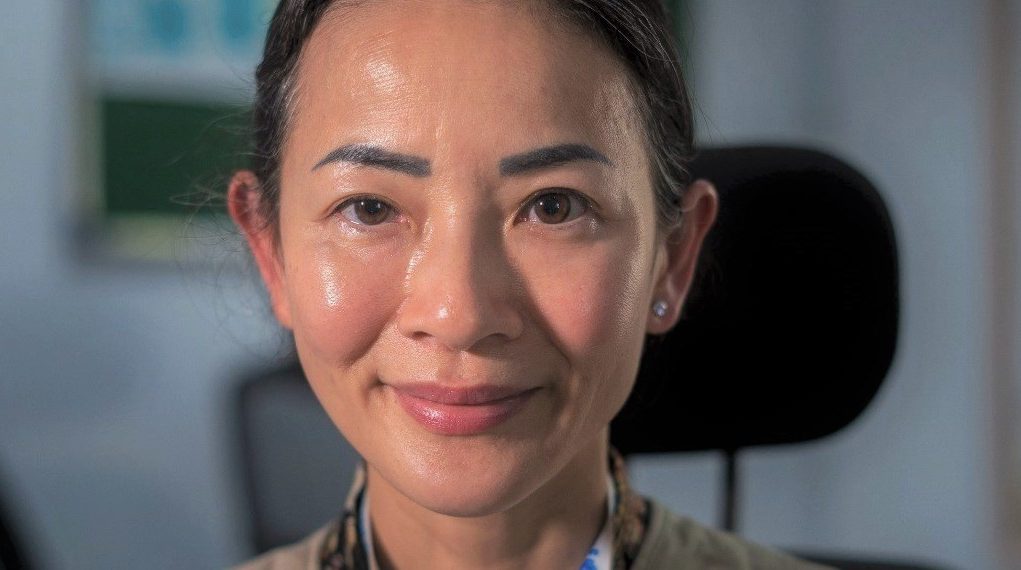
As Nigeria joins the world today, September 9, 2021, to mark the second anniversary of the International Day to Protect Education from Attacks, the UNICEF Chief of Maiduguri Field Office in Borno State, Phuong Nguyen, speaks with PREMIUM TIMES’ Mojeed Alabi, on the impacts of violent attacks on education in North-east Nigeria and the country as a whole.
With over 20 years’ experience managing programmes in complex emergency as well as development contexts across Asia, Africa, Middle East and the Pacific Islands, Ms Nguyen, prior to her current role, was the Chief of Education in UNICEF Somalia. She held the same office in Jordan and South Sudan.
Among other crucial roles, she was the Regional Peacebuilding and Education Manager in Nepal where she provided quality assurance and oversight, knowledge leadership, strategic representation and partnerships support to the Peacebuilding, Education and Advocacy Programme across several South Asian countries.
UNICEF Chief Ms Nguyen had also led support on Education-in-Emergency coordination, preparedness, and response in cooperation with governments, humanitarian and development partners in a number of countries throughout her career with UNICEF.
UNICEF Chief Ms Nguyen is an alumna of Brandeis University in Massachusetts, and George Mason University and Virginia Commonwealth University in Virginia, United States.
Below is the excerpt of the interview:
To begin with, how bad is the impact of attacks on schools in Borno and North-east Nigeria?
Ms Nguyen: Historically, poor participation in education in North-east Nigeria has been exacerbated by armed conflict and insurgency, as a result of which 1,400 schools were damaged, more than one million children forced out of school, and 2,295 teachers killed between 2009 and 2020.
All schools in Borno State were closed from December 2013 to June 2015 due to the escalation of the conflict while in Yobe and Adamawa States, schools have also been closed for shorter periods on an ad hoc basis. The Education-in-Emergency Working Group Nigeria Joint Education Needs Assessment (JENA), November 2019 found that conflict continues to affect the ability of schools to remain open and provide lessons across north-east Nigeria. The JENA 2019 also reports that most schools assessed in Adamawa and Borno states had stopped functioning at some point since 2012 due to the emergency (71% and 68% respectively), as had 43% of schools in Yobe. In the first half of 2021, Borno faced a drastic reduction in humanitarian access with an escalation of actions of Non State Armed Groups (NSAGs) targeting teachers and threatening those who support educational activities.
How much could you say this development has affected the interest of children, students and the parents?
Ms Nguyen: Since the inception of the conflict in north-east Nigeria, education has been identified as a direct target of violence. As reported in the Humanitarian Needs Overview (HNO) 2021, armed conflict, communal violence, natural disasters and resulting economic challenges have aggravated existing challenges and gaps in Borno, Adamawa and Yobe States. An estimated 52% of school-aged children have never attended school and the annual drop-out rate for children in the north-east is the highest in Nigeria, demonstrating the gravity of barriers to education. The crisis has caused large-scale displacement within Nigeria and across borders creating hundreds of thousands of IDPs and returnees. This displaced population is significantly less likely to participate in education and that is especially true for IDPs and returnees living in formal or non-formal camps, many of whom live far from government schools and have limited income to spend on school and school related costs. Among this group, girls are especially unlikely to participate in organized learning activities because of the greater domestic burden that family and community placed upon them, concerns about protection and interaction with unrelated males and perceptions that girls may not need education. Female teachers consequently have a larger and more important role to play as mentors to girls who want to pursue education continuation and completion. Girls are less likely to drop out at the upper primary level when they have female teachers as mentors. Host community children, IDPs and returnees living in host communities may have better access to schools, but often also struggle in schools which do not have conducive learning conditions such as overcrowding or lack of supplies and qualified teachers.


















































